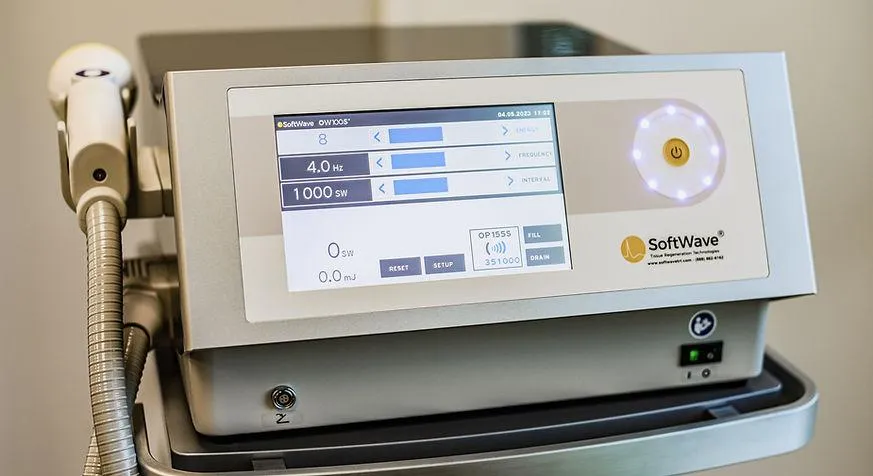Premium Chiropractic Care &
Pain Relief in Las Vegas
OPTIMIZE YOUR HEALTH
Live Your Best Life Now
Pain is a constant challenge and a part of life, the good news is that new technologies and
treatments can alleviate your pain without addictive & destructive pills.

SOFTWAVE THERAPY
(a Miracle Technology)
At Optimal Health Members we provide SoftWave
Therapy to improve overall patient health and help
your body function at its peak.
Once you feel the magical effects of the SoftWave
Therapy you will be able to alleviate pain and
optimize your health!

Reduce Acute &
Chronic Pain

Tissue Repair

Accelerated Wound
Healing

Modulates
Inflammation

Increases Blood
Supply
We Now Offer PERSONAL INJURY SERVICES!
Car Accident? Slip & Fall?
CONDITIONS THAT MAY IMPROVE WITH
SOFTWAVE THERAPY
Back & Neck Pain
Plantar Fasciitis
Shin Splints
Stress Fractures
Diabetic Foot Ulcers
Hamstring Pain
Shoulder, Elbow, Knee Pain
Osgood-Schlater
and so much more!

NON
INVASIVE
NO
ANESTHETIC
NO SIDE
EFFECTS
SHORT
TREATMENTS
QUICK
RECOVERY
LONG
LASTING
Optimal Health Members
If you want to achieve optimal health, then it will take more than just one action to accomplish that. That’s why the team at Optimal Health has created unique memberships where you can alleviate pain and optimize your total body health.
Here’s what’s included:
• Monthly SoftWave therapy to alleviate pain and accelerate healing
• Monthly chiropractic adjustments
• Customized nutrition and supplement plan
• Red light therapy to improve overall skin and health
• Private and exclusive Facebook group – Optimal Health Members
• Weekly Wednesday workshop with Dr. Chris Colgin and Sandi Rocco
THE OPTIMAL HEALTH TEAM

Dr. Chris Colgin
Meet Dr. Chris Colgin, a dedicated chiropractic physician whose primary goal is to assist patients in achieving pain relief, improved health, optimal function, and the opportunity to live their best lives.
Dr. Colgin is on a mission to educate, inspire, and empower individuals to attain optimal health and wellness through natural and organic methods.
With over 25 years of clinical practice experience, Dr. Colgin offers a wide range of services, including pain relief, chiropractic care, neuropathy treatment, thyroid care, diabetes management, autoimmune support, cardiovascular health, weight loss solutions, and much more.
As an inquisitive student of natural medicine, technology, and overall well-being, Dr. Colgin integrates cutting-edge, safe, and highly effective treatments to deliver unparalleled results for his valued patients.

Sandi Rocco
Sandi Rocco is a Certified Health Coach, and Nutritional Therapist through the Institute for Integrative Nutrition. Sandi has studied Chinese herbology and Ayurvedic medicine and Keto Coach completed Dave Osprey’s Bulletproof Health Coaching Program. She was able to overcome stuttering and shyness by becoming a world class champion ice skater, roller skater and salsa dancer.
Sandi works one-on-one with her clients, providing the individual attention they deserve. She leads by example, not just focusing on what is wrong, but on what is possible. She inspires and motivates while creating a wellness plan that helps you achieve your goals and creates a healthier lifestyle.
In Support Of:


OPENING HOURS
Monday - Thursday:
8:00am –
1:00pm & 2:00pm - 5:30pm
Saturday & Sunday:
Closed
ADDRESS
© 2023 by Optimal Health Members.






